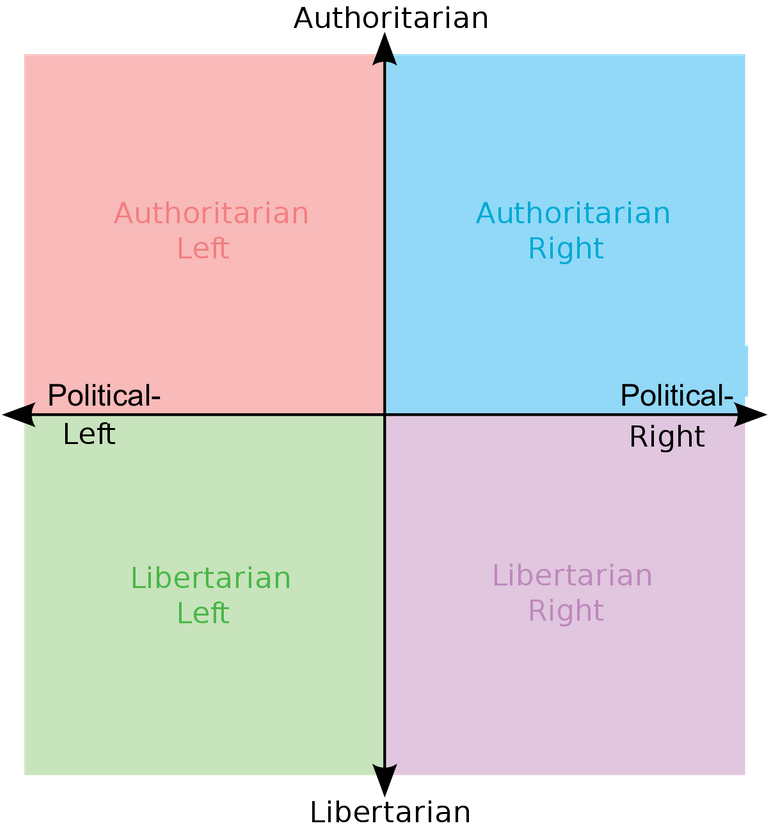
Left and Right are not even political positions. These, instead, refer to different expressions of subjective valuations. As all value is subjective, one individual will always hold some things in higher or lower esteem than others, according to their own subjective preferences.
The study of Politics can be more precisely conceptualized as the study of the Logic of Violence, or perhaps, the Logic of Force. Politics, therefore, deals not with these subjective preferences and differences in values represented by "Right" and "Left", but instead deals with differences in conclusions about when it is acceptable or justifiable to use the force of violence against individuals.
We will never come to a time in which the subjective opinions of the Left totally overpower the subjective opinions of the Right, nor the opposite. But what could - and indeed must! - come to pass, is a time in which all sides of the debates converge upon an agreeable Logic of Violence.
Bret Weinstein recently gave a talk in which he concluded with a description of the political landscape as roughly represented by the Political Compass.

It represents a two-axis, and thus two-dimensional landscape rather than the traditional one-axis one-dimensional political landscape. I agree with Bret that this is a much more robust formulation.
As stated above, the x-axis which represents the traditional Left and Right are really only representative of subjective preferences and value differences. Attempts to change the opinions or value hierarchies of either side are rather fruitless.
The y-axis, however, in my opinion represents the real political divide, because it represents differences in the Logic of Violence.
Ludwig von Mises wrote in Human Action:
There are two different kinds of social cooperation: cooperation by virtue of contract and coordination, and cooperation by virtue of command and subordination.
The Authoritarians, both Right Authoritarians and Left Authoritarians, are actually in political agreement that the best form of social cooperation is that by virtue of command and subordination.
The Libertarians, both Left Libertarians and Right Libertarians, are in political agreement that the best form of social cooperation is that by virtue of ** contract and coordination**.
The Political Strategic Advantage
We find then an interesting outcome that results from this formulation. That is that differences in values as represented by the traditional Left and Right, become deadly important the farther a society or its government climbs upwards to Authoritarianism.
This is because someone on the Authoritarian Left not only holds the subjective preference for not owning guns, but also advocates that the government will command you to give up your guns, and if you do not obey the command violence should be initiated against you until you obey. Someone who olds a different opinion, then, rightly views this "leftist" opinion to be a threat of violence.
In the same way, someone on the Authoritarian Right not only holds the subjective preference for not having abortions, but also advocates that the government will command that you not be allowed to have an abortion if you wish, and if you do not obey the command violence should be initiated against you until you obey. Someone who holds a different opinion, then, views this "rightist" opinion to be a threat of violence against them.
In an Authoritarian society, differences in values and opinions become matters of life and death. It becomes a matter of personal agency, which is the ability to choose for one's self. Authoritarians, while agreeing that control and subordination is the best way to organize society, hate each other because of their unresolvable differences in opinion about what should be commanded and imposed upon all of society.
Conversely, the further a society moves towards Libertarianism, the less important subjective value differences become. This is because while someone on the Libertarian Right may be totally against abortion, they also believe that you should have the right to make that choice for yourself. They do not wish to impose their opinion onto others via violence.
And someone on the Libertarian Left, while they have a strong preference against guns, do not wish to take away your right to decide whether or not you want guns in your own household. Again, they do not which to impose their opinion onto others through violence.
This means that the Authoritarian Left and the Authoritarian Right, even though they are in complete political agreement with regard to the logic of violence and the means of social organization, must remain eternal enemies. The differences in subjective values are so important that a Hobbesian Trap or Fear Spiral emerges, in which both sides seek to destroy the other before the other tries it first.
The Libertarian Left and the Libertarian Right, however, are not mortal enemies. In fact, they can bond and cooperate over their mutual political agreement regarding the logic of violence and social organization. This gives the political libertarians a huge advantage over the political authoritarians, because they can unify, regardless of differences in subjective valuations.
A New Social Contract
Whereas both Authoritarian Leftists and Authoritarian Rightists ultimately want to establish a totalitarian government to impose by force their preferences for the best sort of society, the Libertarians understand that the millions of different personalities, opinions, and values of all of the individuals in the world or country cannot be reconciled by a single command, under which all must be subordinate.
Instead, the Libertarian ideal is represented by by Paul-Emile de Puydt's short essay Panarchy, in which the ideal of social cooperation via contract and coordination is maximized. He writes:
Under the present conditions a government exists only by the exclusion of all the others, and one party can rule only after smashing its opponents; a majority is always harassed by a minority which is impatient to govern. Under such conditions it is quite inevitable that the parties hate each other and live, if not at war, at least in a state of armed peace. Who is surprised to see that minorities intrigue and agitate, and that governments put down by force any aspiration to a different political form which would be similarly exclusive? So society ends up composed of ambitious resentful men, waiting for vengeance, and ambitious power-sated men, sitting complacently on the edge of a precipice. Erroneous principles never bring about just consequences, and coercion never leads to right or truth.
His idea is one in which instead of coercive governments which have territorial monopolies on violence, we allow all individuals to select from voluntary Governance Service Providers, regardless of our geographical location.
Then imagine that all compulsion ceases; that every adult citizen is, and remains, free to select from among the possible offered governments the one which conforms to his will and satisfies his personal needs; free not only on the day following some bloody revolution, but always, everywhere, free to select, but not to force his choice on others. At that point all disorder comes to an end, all fruitless struggle becomes impossible.
"Free to select, but not to force his choice on others." This represents a Copernican Shift in the Logic of Violence.
The ideal is summarized by the slogan Laissez-faire! Laissez-passer! Which translates to Allow to do! Allow to travel!
It is my opinion that the Libertarian model of social cooperation is far superior to the Authoritarian model, both ethically and practically. And further, the Libertarian Left and Right have a strategic advantage that could become a strong political force in the near future.
It is for this reason that I agree with Bret Weinstein that we should stop speaking in terms of Left vs Right, but should start implementing a more sophisticated language which differentiates Left Authoritarians from Left Libertarians, and Right Authoritarians from Right Libertarians.
- KG
Photo by Michał Parzuchowski on Unsplash
I couldn't agree more. Excellent post. By the way, I love your username!
Err....
https://steemit.com/anarchy/@joesal/power-politics-of-the-left-and-the-right-why-it-matters
and
https://steemit.com/power/@joesal/y-axis-shift
See, this tendency of libertarians to reduce every political question to a discussion of who's allowed to shoot whom is exactly what holds them back from being able to participate usefully in politics. There's far more to organizing a society than that.
Even within the examples you give, though... the difference between the anti-gun leftist and the anti-abortion rightist still is basically a question of who gets to use violence against whom. They're both fundamentally advocating the defensive use of force, which libertarians are generally okay with—the leftist wants to use violence in order to reduce the risk of someone else doing violence using a gun; the rightist wants to use violence to defend an unborn baby from the violence being done against it by a doctor. The disagreement between them comes down to deciding what constitutes violence or the threat of violence sufficient to justify the use of violence to prevent it. So even within a political framework based entirely around the question of violence, you can't handwave this particular left-versus-right question away so easily as that.